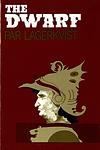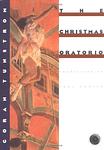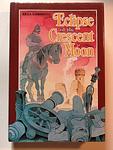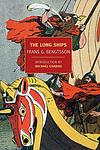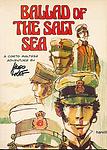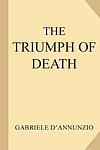The Greatest Hungarian, Swedish, Italian "Historical fiction" Books of All Time
Click to learn how this list is calculated.
This list represents a comprehensive and trusted collection of the greatest books. Developed through a specialized algorithm, it brings together 305 'best of' book lists to form a definitive guide to the world's most acclaimed books. For those interested in how these books are chosen, additional details can be found on the rankings page.
Genres
Historical fiction is a genre of literature that combines fictional stories with real historical events, settings, and characters. These books often take place in a specific time period and are based on research and factual information, but also include imaginative elements to create a compelling narrative. Historical fiction allows readers to experience the past in a unique and engaging way, while also providing insight into the social, cultural, and political issues of the time.
Countries
Date Range
Reading Statistics
Click the button below to see how many of these books you've read!
Download
If you're interested in downloading this list as a CSV file for use in a spreadsheet application, you can easily do so by clicking the button below. Please note that to ensure a manageable file size and faster download, the CSV will include details for only the first 500 books.
Download-
1. The Leopard by Giuseppe Tomasi di Lampedusa
"The Leopard" is a historical novel set in 19th-century Sicily, during the time of the Italian unification or Risorgimento. It centers on an aging, aristocratic protagonist who is coming to terms with the decline of his class and the rise of a new social order. The narrative weaves together personal drama with the larger political and social upheaval of the time, providing a rich, nuanced portrait of a society in transition. Despite his resistance to change, the protagonist ultimately recognizes its inevitability and the futility of his efforts to preserve the old ways.
The 97th Greatest Book of All Time -
2. The Name of the Rose by Umberto Eco
Set in a wealthy Italian monastery in the 14th century, the novel follows a Franciscan friar and his young apprentice as they investigate a series of mysterious deaths within the monastery. As they navigate the labyrinthine library and decipher cryptic manuscripts, they uncover a complex plot involving forbidden books, secret societies, and the Inquisition. The novel is a blend of historical fiction, mystery, and philosophical exploration, delving into themes of truth, knowledge, and the power of the written word.
The 108th Greatest Book of All Time -
3. Decameron by Giovanni Boccaccio
"Decameron" is a collection of 100 stories told by a group of seven young women and three young men sheltering in a secluded villa just outside Florence to escape the Black Death, which was afflicting the city. The tales, which range from the erotic to the tragic, the hilarious to the instructional, are embedded in a rich framework narrative that provides a detailed portrait of the society of the Italian Renaissance.
The 205th Greatest Book of All Time -
4. The Betrothed by Alessandro Manzoni
"The Betrothed" is a historical novel set in Lombardy, Italy during the 17th century, in the midst of political and religious turmoil. The story follows the journey of two peasants, Renzo and Lucia, who are in love and wish to marry. However, their plans are thwarted by a corrupt local baron who desires Lucia for himself, and a cowardly priest who refuses to stand up to the baron. The couple are forced to flee, facing numerous hardships and adventures, while their faith and love for each other are continually tested. The novel explores themes of love, faith, and the struggle for justice.
The 480th Greatest Book of All Time -
5. Fateless by Imre Kertész
"Fateless" is a harrowing account of a Hungarian Jewish boy's experiences in Nazi concentration camps during World War II. The protagonist is sent to Auschwitz, then Buchenwald, and finally to a factory in Zeitz, enduring brutal conditions and witnessing unimaginable horrors. Despite his experiences, he maintains a detached, almost indifferent perspective, focusing on the mundane aspects of life in the camps, which further highlights the absurdity and horror of the situation. The novel explores themes of identity, survival, and the arbitrary nature of fate.
The 686th Greatest Book of All Time -
6. History by Elsa Morante
"History" is a novel set in Rome during World War II and the post-war period, focusing on the life of a widowed schoolteacher and her young son. The narrative explores the struggles of the impoverished family against the backdrop of war, including the Nazi occupation of Rome, the Allied bombing, and the rise of Fascism. The book also delves into the themes of love, loss, and survival, offering a poignant depiction of the human condition.
The 697th Greatest Book of All Time -
7. Embers by Sandor Marai
"Embers" is a novel about two old friends who reunite after being apart for 41 years. The story takes place in a secluded castle in the Carpathian Mountains, where the two men confront each other about a long-kept secret that has kept them apart. The narrative delves into themes of friendship, love, loyalty, and betrayal, while exploring the intricate dynamics of human relationships. The novel is a poignant examination of the nature of time and memory, and the ways in which they can shape and define our lives.
The 722nd Greatest Book of All Time -
8. The Garden of the Finzi-Continis by Giorgio Bassani
Set in Ferrara, Italy during the late 1930s, the book tells the story of the Finzi-Continis, a wealthy, aristocratic Jewish family who live in a secluded mansion with a beautiful, walled garden. The narrator, a young middle-class Jew, becomes infatuated with the family's daughter, Micoleta. As the Fascist regime's anti-Jewish laws become increasingly oppressive, the idyllic garden becomes a sanctuary for the local Jewish community, including the narrator. Despite the looming threat of the Holocaust, the family remains oblivious to their impending fate, leading to a tragic end.
The 726th Greatest Book of All Time -
9. The Moon and the Bonfires by Cesare Pavese
The story follows a man who, after making a fortune in America, returns to his small hometown in Italy after World War II. He finds the place significantly changed, with many of his old friends either dead or drastically different. As he tries to reconcile his memories with the new reality, he also grapples with his own identity and the impact of the war on his home. The narrative explores themes of change, identity, and the lasting effects of war.
The 743rd Greatest Book of All Time -
10. If Not Now, When? by Primo Levi
This novel follows a band of Jewish partisans behind German lines during World War II. They are a diverse group from different countries and social backgrounds, all brought together by the common goal of sabotaging the Nazi war effort and surviving the Holocaust. The narrative explores their various experiences, the challenges they face, their acts of resistance, and their hopes for a future free from oppression. The title reflects the urgent necessity of their mission and their determination to fight back against their persecutors.
The 830th Greatest Book of All Time -
11. Barabbas by Par Lagerkvist
This novel tells the story of Barabbas, the man who was pardoned instead of Jesus Christ, according to the New Testament. After being released, Barabbas grapples with his newfound freedom and the guilt of being spared at the expense of Jesus. As he witnesses the rise of Christianity and the profound impact Jesus' teachings have on those around him, he struggles with his own beliefs and the meaning of his existence. The narrative explores themes of faith, redemption, and the human condition.
The 893rd Greatest Book of All Time -
12. The Dwarf by Par Lagerkvist
"The Dwarf" is a dark, philosophical novel set in the Italian Renaissance, narrated by a malevolent court dwarf who serves a prince. The dwarf is a symbol for the darker side of humanity, embodying all the malice, deceit, and manipulation that one can possess. His actions and viewpoint provide a cynical commentary on human nature and the moral complexities of power, war, and love. The novel explores themes of good and evil, faith and doubt, and the destructive side of human nature.
The 1022nd Greatest Book of All Time -
13. The Christmas Oratorio by Göran Tunström
"The Christmas Oratorio" is a poignant story set in a small Swedish town, revolving around a boy who loses his mother and his relationship with his silent, grieving father. The narrative is deeply embedded in music, specifically Bach's Christmas Oratorio, which becomes a source of solace for the boy. The tale is a rich tapestry of love, loss, and the healing power of music, exploring the deep emotional bonds between father and son, and the transformative power of art.
The 1080th Greatest Book of All Time -
14. I Malavoglia by Giovanni Verga
"I Malavoglia" is a tragic tale of a poor Sicilian family who struggles to maintain their dignity and values in the face of poverty, death, and societal pressure. The family's patriarch is determined to keep their ancestral home and to improve their lot through hard work and sacrifice. However, their efforts are thwarted by a series of unfortunate events, including the loss of their fishing boat, the death of family members, and the dishonor of their only daughter. Despite these hardships, the family perseveres, embodying the resilience and determination of the Sicilian people.
The 1193rd Greatest Book of All Time -
15. The Notebook: The Proof ; The Third Lie : Three Novels by Agota Kristof
"The Notebook: The Proof ; The Third Lie : Three Novels" is a trilogy of novels that follow the lives of twin brothers, living through the harsh realities of war, separation, and betrayal. The first novel, "The Notebook," tells the story of their survival as children in a rural town at the end of World War II. The second book, "The Proof," continues their story into adulthood, exploring the effects of their traumatic childhood. The final book, "The Third Lie," delves into the complexities of their relationship and the secrets they kept from one another. The trilogy is a poignant exploration of identity, love, and the enduring bond of brotherhood.
The 1298th Greatest Book of All Time -
16. Journey by Moonlight by Antal Szerb
"Journey by Moonlight" tells the story of a newlywed Hungarian couple, Mihály and Erzsi, who honeymoon in Italy. Mihály, however, is haunted by his past and becomes increasingly obsessed with his adolescent years, his old friends, and a mysterious brother and sister. This results in him abandoning Erzsi in order to embark on a strange and dark journey of self-discovery. The novel explores themes of nostalgia, love, and the struggle between personal desires and societal expectations.
The 1350th Greatest Book of All Time -
17. Kaputt by Curzio Malaparte
"Kaputt" is a semi-autobiographical novel that portrays the bleak and disturbing experiences of the author during World War II. The narrative is set in Eastern Europe and offers a vivid depiction of the war's atrocities, including the Holocaust, as seen through the eyes of a war correspondent. The book is known for its surreal and grotesque imagery, combined with the author's sharp and cynical observations of the war's impact on humanity.
The 1500th Greatest Book of All Time -
18. Eclipse of the Crescent Moon by Géza Gárdonyi
"Eclipse of the Crescent Moon" is a historical novel set in the 16th century, during the time of the Ottoman Empire's siege on the Hungarian fortress of Eger. The story follows a brave young boy named Gergely, who grows up to be a heroic soldier defending his homeland. The tale is filled with romance, adventure, and provides a detailed depiction of medieval life, warfare, and the heroic resistance of the Hungarian people against the invading Ottoman forces.
The 1554th Greatest Book of All Time -
19. Simon and the Oaks by Marianne Fredriksson
"Simon and the Oaks" is a poignant tale set against the backdrop of World War II, depicting the life of a young Swedish boy, Simon, who comes from a working-class family but dreams of a world beyond his own. His life changes when he befriends Isak, a boy from a wealthy Jewish family fleeing from Nazi Germany. The book explores their friendship, the stark contrast between their worlds, their shared love for literature and music, and the impact of war on their lives. It also delves into themes of identity, love, loss, and the enduring power of human spirit.
The 1636th Greatest Book of All Time -
20. The Long Ships by Frans G. Bengtsson
"The Long Ships" is a historical fiction novel centering around the Viking era. The story follows the adventures of a young Viking named Red Orm who is kidnapped by other Vikings, becomes a slave, then a chieftain's henchman, a merchant, explorer, and a soldier. His adventures take him from his native Sweden to Spain, England, Denmark, and Ireland. The novel explores the political, religious, and cultural landscapes of the era, providing a detailed and engaging portrayal of the Viking world.
The 1660th Greatest Book of All Time -
21. The Emigrants by Vilhelm Moberg
"The Emigrants" is a historical novel that follows the journey of a Swedish farming family who, driven by poverty and religious persecution, decide to emigrate to America in the mid-19th century. The narrative explores their struggles and hardships, from the decision to leave their homeland, the arduous journey across the Atlantic, to their eventual settlement in Minnesota. The book provides a profound and realistic depiction of the immigrant experience, highlighting the courage, determination, and resilience of the emigrants.
The 1708th Greatest Book of All Time -
22. Silk by Alessandro Baricco
"Silk" is a historical fiction novel that tells the story of a 19th-century French silkworm merchant who travels to Japan for business. During his travels, he becomes enamored with a mysterious woman. His unrequited love for her haunts him for the rest of his life, even as he returns to France and continues his life there. The novel explores themes of love, longing, and the profound impact that brief encounters can have on one's life.
The 1880th Greatest Book of All Time -
23. Ballad of the Salt Sea by Hugo Pratt
This graphic novel follows the adventures of a young sailor who becomes entangled in a dangerous plot involving pirates, kidnappings, and political intrigue in the South Seas. Set in the early 20th century, the story is filled with historical references and exotic locales, providing a rich backdrop for the complex narrative. The sailor's journey is not just physical but also emotional, as he navigates the treacherous waters of personal relationships and moral dilemmas.
The 1922nd Greatest Book of All Time -
24. The Triumph Of Death by Gabriele D'Annunzio
This novel delves into the life of Giorgio Aurispa, a man who, amidst the decadence of Italian society, embarks on a journey of self-discovery and existential questioning. Through his relationships, particularly with the enigmatic Ippolita Sanzio, and his experiences across various European locales, Giorgio confronts themes of love, death, and the search for meaning. The narrative, rich with symbolic imagery and poetic language, explores the depths of human emotion and the inevitable confrontation with mortality, culminating in a profound exploration of the human condition and the pervasive sense of disillusionment that characterized the turn of the century.
The 2049th Greatest Book of All Time -
25. Celestial Harmonies by Peter Esterhazy
"Celestial Harmonies" is a historical novel that tells the story of the aristocratic Esterházy family, tracing their lineage from the late Middle Ages to the present day. The narrative is divided into two parts, with the first part featuring a series of vignettes about the family's ancestors, while the second part focuses on the experiences of the narrator's father under the Communist regime in Hungary. The novel is characterized by its intricate structure, complex themes, and lush, poetic language, offering a rich exploration of Hungarian history, family dynamics, and the human condition.
The 2369th Greatest Book of All Time
Reading Statistics
Click the button below to see how many of these books you've read!
Download
If you're interested in downloading this list as a CSV file for use in a spreadsheet application, you can easily do so by clicking the button below. Please note that to ensure a manageable file size and faster download, the CSV will include details for only the first 500 books.
Download










